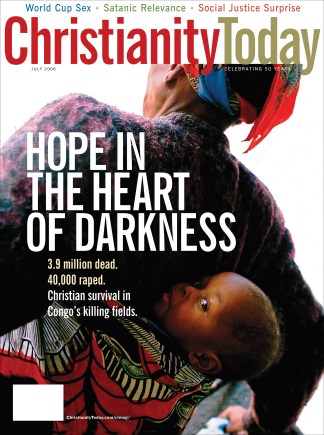International observers have called on Serbian president Boris Tadic to change a new law on religion he signed May 3. They worry interpretations of the law will lead the government to discriminate against religious minorities, including evangelicals.
According to Forum 18 News Service, the law requires churches outside of seven “traditional” faiths to reapply for legal status. Groups such as the Anglicans, Pentecostals, Baptists, and Nazarenes have worked in Serbia for decades but now must pay property taxes. The dominant Serbian Orthodox Church pays no property taxes and receives some funding from the government.
Dane Vidovic, pastor of First Baptist Church in Belgrade, said he fears the beginning of an official state church in Serbia. “Even today, the Orthodox church plays the role of a state church, but this law is a step ahead in formalizing this,” Vidovic said. “Some of the members of Parliament are strongly anti-evangelical.”
Vidovic added that Prime Minister Vojislav Kostunica’s Democratic Party of Serbia maintains close ties to the Serbian Orthodox Church and has been the driving force behind the law.
The vast majority of Serbia’s 8 million people belong to the Serbian Orthodox Church. Among the Protestant minority of 170,000, about 130,000 belong to the Slovak Lutheran and the Hungarian Reformed churches. The other 40,000 belong to evangelical churches.
The Serbian minister of religion, Milan Radulovic, says critics have not effectively studied the new law.
“Every person who knows Serbia and the religious structure well would understand that this is a very constructive law,” Radulovic told CT. “All churches can cooperate with the state, and all churches will get their own identity and dignity under their own name, and the right to take [a] place in public life.”
Radulovic said the Orthodox, Catholic, and traditional Protestant churches also do not recognize evangelical communities as legitimate churches. He told CT, “These are not churches but Christian factions.”
Before the law was ratified, the U.S. ambassador to Serbia, Michael Polt, urged Tadic not to sign it. The Organization for Security and Cooperation in Europe (OSCE) is concerned that the law contradicts the European Convention on Human Rights, which Serbia signed in 2004.
“There are a number of shortcomings in the recently approved legislation,” OSCE said, “in particular concerning the need for more precise criteria to define the discretionary powers provided by the law to state and religious authorities, [and] the uncertain effect of ‘non-registration’ on some basic guarantees of freedom of religion.”
Copyright © 2006 Christianity Today. Click for reprint information.
Related Elsewhere:
More articles on evangelicals in Serbia and Montenegro are available from our World Report.










